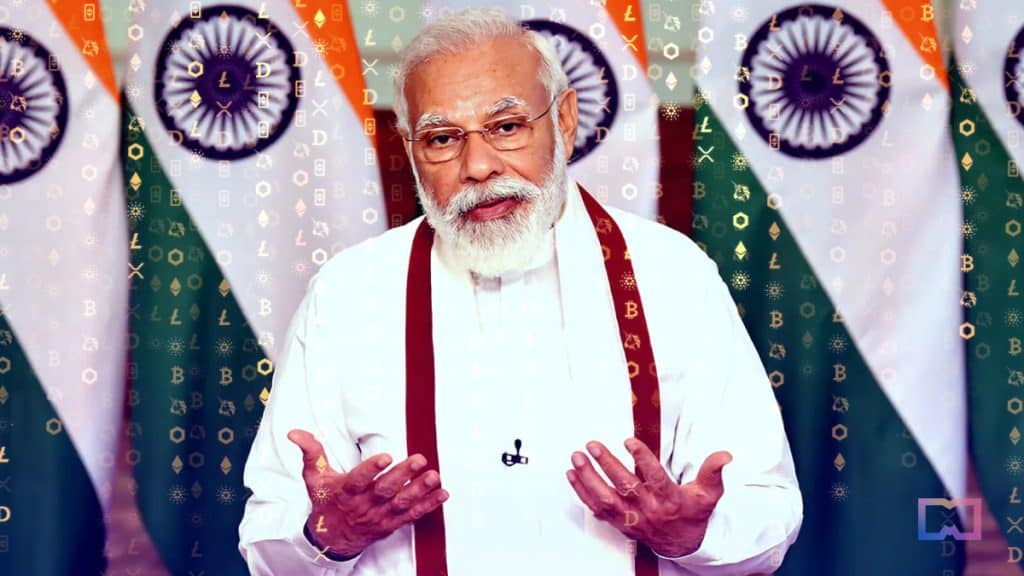Indian Prime Minister Narendra Modi Calls for Global Crypto Regulatory Framework


In Brief
India’s Prime Minister Narendra Modi published a G20 Presidency note calling for a global crypto regulatory framework.
PM Modi is currently the chairman of The G20, an intergovernmental forum comprising 19 countries and the European Union (EU).
The note suggests several action points, including conducting outreach to all jurisdictions to generate awareness of crypto risks.

Narendra Modi, Indian Prime Minister and G20’s incumbent chairman, has called for a global crypto regulatory framework. The request was made through a Presidency Note, which acts as an input for a roadmap on establishing a global framework for crypto assets.
As per PM Modi’s note, G20 has identified the need for coordination and consistent implementation of regulations and guidance put in place by different jurisdictions.
He said that multiple organizations – including the Financial Stability Board (FSB) and the Financial Action Task Force (FATF) – are working on framing essential regulatory standards for the crypto assets industry.
The IMF-FSB Synthesis Paper is expected to be released at the end of August. According to an IMF blog post published on July 18, the paper will be delivered to the Leaders’ Summit in September.
The goal of the roadmap is to help countries come to an agreement on the minimum policy standard for crypto assets. PM Modi said that this would safeguard nations’ macroeconomics, financial stability, and financial integrity, and provide appropriate investor/user awareness, among other benefits.
Additionally, the Presidency Note suggests several action points, including:
- Promoting effective implementation of the FSB’s high-level recommendations
- Working towards the articulation of an analysis that takes into account macro financial implications and risks specific to emerging and developing economies (EMDEs).
- Outreach to all jurisdictions to generate awareness of risks, build capacity on implementation, oversight, and enforcement of recommended standards
- Continued monitoring of financial stability risks posed by crypto assets.
While global leaders have yet to agree on a clear framework for crypto, India has put in place its own regulations. Last year, the country’s government mandated a 30% tax on the transfer of virtual assets. Additionally, if the transaction exceeds INR 50000 and INR 10000, a 1% income tax will be imposed.
India’s crypto asset taxes also apply to airdrops, crypto gifts, NFT trading, crypto mining, staking, referrals, token sales, and crypto salary.
Keep track of cryptocurrency distributions in our Airdrops Calendar.
Disclaimer
In line with the Trust Project guidelines, please note that the information provided on this page is not intended to be and should not be interpreted as legal, tax, investment, financial, or any other form of advice. It is important to only invest what you can afford to lose and to seek independent financial advice if you have any doubts. For further information, we suggest referring to the terms and conditions as well as the help and support pages provided by the issuer or advertiser. MetaversePost is committed to accurate, unbiased reporting, but market conditions are subject to change without notice.
About The Author
Cindy is a journalist at Metaverse Post, covering topics related to web3, NFT, metaverse and AI, with a focus on interviews with Web3 industry players. She has spoken to over 30 C-level execs and counting, bringing their valuable insights to readers. Originally from Singapore, Cindy is now based in Tbilisi, Georgia. She holds a Bachelor's degree in Communications & Media Studies from the University of South Australia and has a decade of experience in journalism and writing. Get in touch with her via [email protected] with press pitches, announcements and interview opportunities.
More articles

Cindy is a journalist at Metaverse Post, covering topics related to web3, NFT, metaverse and AI, with a focus on interviews with Web3 industry players. She has spoken to over 30 C-level execs and counting, bringing their valuable insights to readers. Originally from Singapore, Cindy is now based in Tbilisi, Georgia. She holds a Bachelor's degree in Communications & Media Studies from the University of South Australia and has a decade of experience in journalism and writing. Get in touch with her via [email protected] with press pitches, announcements and interview opportunities.

















































